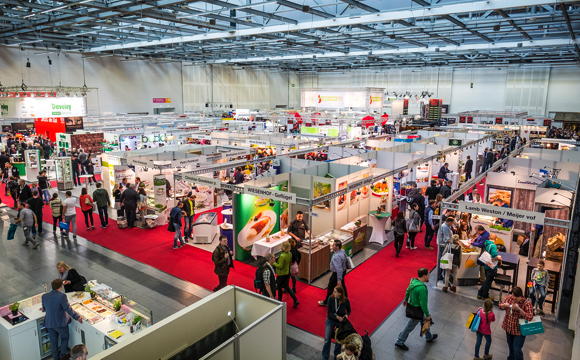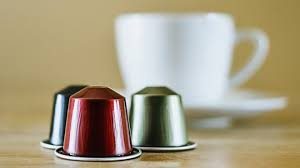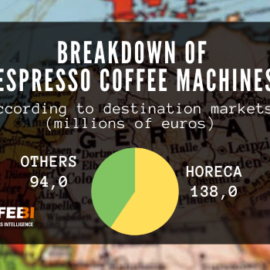Coffee Pods About to Overtake Instant and Ground Coffee
 A recent study from Kantar Worldpanel revealed major increase in coffee pods consumption and data shows that coffee capsules are soon to surpass both instant and standard ground coffee.
A recent study from Kantar Worldpanel revealed major increase in coffee pods consumption and data shows that coffee capsules are soon to surpass both instant and standard ground coffee.
An increase of 29.5 per cent over the last 12 months in the sales of coffee capsules represents a remarkable figure. Especially in view of the fact that over the same period sales of standard ground coffee rose by only 2.5 per cent. These results raise already existing concerns about environmental consequences of coffee pods usage and the need to recycle them more efficiently.
The Glamour of Coffee Pods
The single-serve coffee machines using coffee pods are getting more popular and in demand, with more consumers than ever opting for coffee pods. Almost every fifth Brit owns a coffee pod machine of brand such as Nespresso, Tassimo and DolceGusto.
There are especially three major factors that put pod coffee on the top: convenience, speed and flavour.
The single-serve coffee container prepares just the accurate amount of coffee for a single portion. There are especially three major factors that put pod coffee on the top: convenience, speed and flavour. One doesn’t have to spend time waiting at the machine to stop it brewing. The machine also reduces the time of the preparation and cleaning after brewing a single cup. The quality of the coffee itself is also indisputable and the self-indulgent coffee drinkers do not have to lower their demands.
The Environmental Damage
Nevertheless besides its pros, coffee pods have also its cons since vast majority of the pods are not biodegradable. Most of the pods end up in landfills and it can take up to 500 years for them to degrade. Coffee pods mostly consist of mix of metal, plastic and organic material representing by the used coffee.
Most of the pods end up in landfills and it can take up to 500 years for them to degrade.
Hamburg, the second largest city in Germany, has banned coffee capsules and other disposable products from its council buildings earlier in 2016. Since there is growing concern about the environmental impact of these coffee favourites, the producers face huge criticism from all around the world. Some brands thus decided to act more environment-friendly and sustainable.
Calling for More Sustainable Products
The coffee pods industry has been forced to react to the criticism. Nespresso now asks their customers to bring the used capsules back to the store or special collection points. When recycled the capsules get turned in range of other products from window frames to bicycles. The question is how many customers do behave this responsible and hand the used capsules in.
Recently there are also other coffee pods producers developing types of capsules that are biodegradable and can compose naturally.
The coffee pods industry has been forced to react to the criticism. Nespresso now asks their customers to bring the used capsules back to the store or special collection points.
Despite of the environmental consequences, the sales of coffee capsules continue to climb and are very likely to break a record in 2017. Even though the coffee capsules are in general more expensive and less sustainable, the flavour and convenience of use are the main determinants why coffee pods are being so popular.



